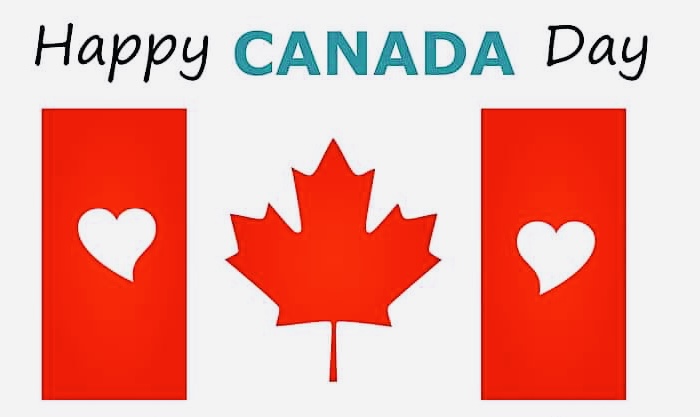Introduction
Canada Day, also known as Canada’s birthday, is a significant national holiday that is celebrated with great enthusiasm across the country. This day holds deep historical and cultural significance for Canadians, commemorating the formation of the Canadian Confederation on July 1, 1867.

History
Canada Day traces its roots back to the year 1867 when the Constitution Act united the colonies of Canada, New Brunswick, and Nova Scotia into a single Dominion within the British Empire. This event, known as Confederation, marked the birth of the modern nation of Canada.
Initially known as Dominion Day, the holiday was renamed Canada Day in 1982. This change symbolized a shift towards greater recognition and celebration of Canada’s distinct cultural heritage and achievements as an independent nation. Today, Canada Day serves as a reminder of the struggles and sacrifices made by the early settlers and the subsequent generations that contributed to the growth and development of the country.
Culture and Traditions
Canada is renowned for its rich and diverse cultural heritage, shaped by the contributions of Indigenous peoples, French and British settlers, and subsequent waves of immigration from around the world. Canada Day serves as an occasion to celebrate and showcase this vibrant cultural mosaic.
One of the distinctive cultural traditions on Canada Day is the display of national symbols. Canadians proudly don the colors of their flag, with red and white clothing, accessories, and face paint being popular choices. The national flag, known as the Maple Leaf, is prominently displayed in public spaces, homes, and on clothing during the celebrations.
Music also plays a significant role in Canada Day festivities, with both traditional and contemporary Canadian music being showcased. Many cities organize concerts and live performances featuring local musicians, bands, and choirs. The Canadian national anthem, “O Canada,” is sung with great pride during these celebrations.
Food is another integral part of Canadian culture, and Canada Day presents an opportunity to indulge in traditional Canadian delicacies. Barbecues and picnics are popular, with Canadians enjoying classic dishes such as poutine (fries topped with cheese curds and gravy), maple syrup-infused treats, butter tarts, and various regional specialties.
Cultural exhibitions and activities are organized across the country to highlight the diverse heritage of different communities. These may include dance performances, art displays, craft workshops, storytelling sessions, and Indigenous ceremonies. Canadians take pride in sharing their cultural traditions and learning about the traditions of others during these events.
Modern Day Celebrations
Canada Day is celebrated in cities, towns, and communities throughout the country. The largest celebrations take place in major cities like Ottawa, where Parliament Hill hosts a grand ceremony with the Prime Minister’s address, musical performances, and a spectacular fireworks display. Many Canadians also take advantage of the long weekend to engage in outdoor activities, picnics, and barbecues with family and friends.
Many Canadians also take advantage of the long weekend to engage in outdoor activities, picnics, and barbecues with family and friends. It is a time for people to come together, enjoy live music performances, participate in games and sports events, and indulge in delicious Canadian delicacies.
Moreover, Canada Day provides an opportunity for new immigrants to become Canadian citizens through special citizenship ceremonies held across the country. These ceremonies highlight the importance of inclusion and showcase the diversity and strength of Canada’s multicultural society.
Significance
Canada Day is not only a day of celebration but also an occasion for reflection and appreciation of Canadian values such as diversity, inclusivity, and multiculturalism. It serves as a reminder of the accomplishments, progress, and unity of the Canadian nation. It is a time to honor the sacrifices made by previous generations and to express gratitude for the freedoms, rights, and opportunities that Canadians enjoy today.
On this day, Canadians take pride in their accomplishments as a nation, including advancements in healthcare, education, and social welfare. It is an occasion to honor the contributions of notable Canadians who have made a significant impact on the country’s development in fields such as science, literature, arts, and sports.
Conclusion
As Canada celebrates its birthday on July 1st each year, it is a time for Canadians to come together, reflect on the nation’s history, embrace its diverse culture, and look towards a bright future. Canada Day is more than just a holiday; it is a celebration of unity, diversity, and the Canadian identity.
Through its rich history, significant accomplishments, cultural traditions, and modern-day celebrations, Canada Day encapsulates the spirit and values of Canada as a progressive and inclusive nation. It is a day to express pride in being Canadian and to appreciate the multicultural tapestry that defines this great country.
So, this Canada Day, join in the celebrations, embrace the vibrant culture, and take pride in being a part of this beautiful nation.
Happy Canada Day!
 Gleez
Gleez